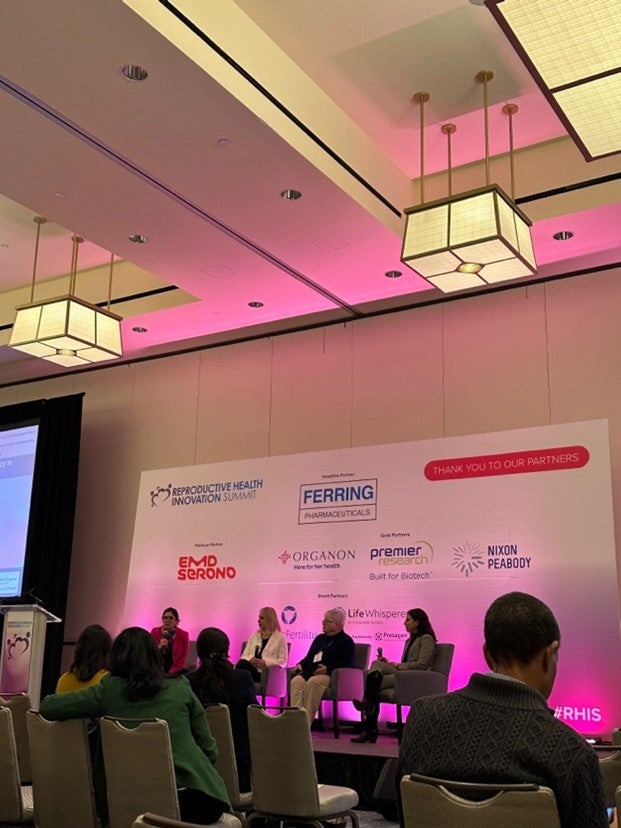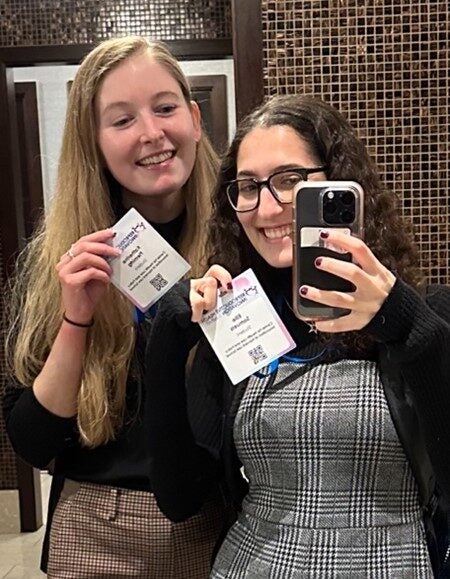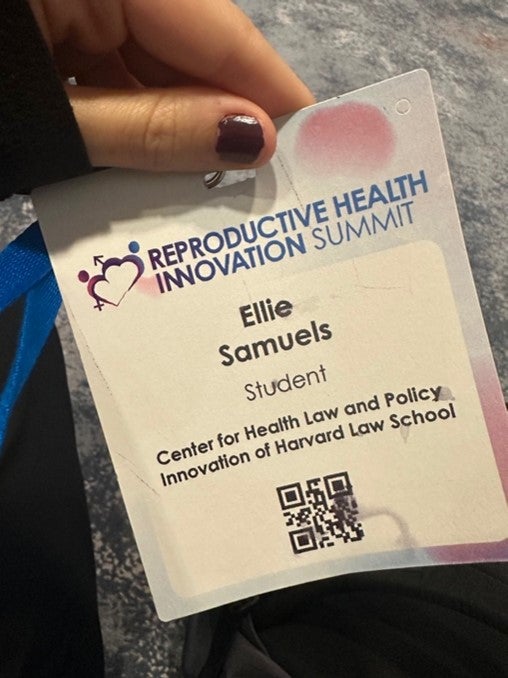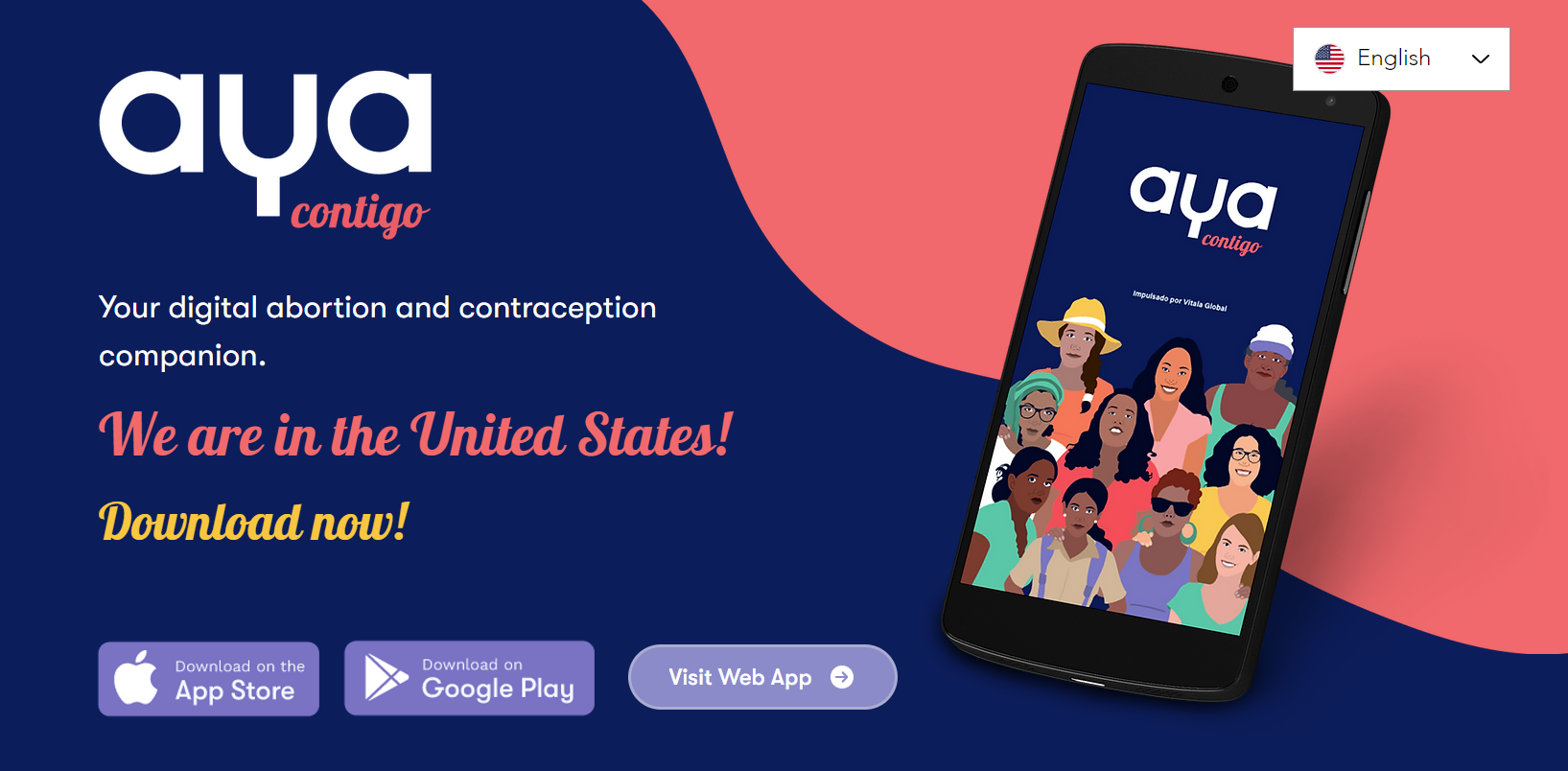Via CHLPI Blog
By Ellie Samuels ’24
As a member of the Health Law and Policy Clinic’s Reproductive health team, I had the opportunity to attend the fourth annual Reproductive Health Innovation Summit in Boston. The conference featured a whirlwind of events spotlighting pressing topics in reproductive health and championing technological advancements in the space.

Many of the panelists and presenters were medical technology experts and charismatic startup founders; discussions about venture capital, patent protections, and “industry disruption” abounded. As someone with a background in the law and policy side of reproductive rights, I often felt like a fish out of water. At the same time, it was an incredibly informative and exciting window into an unfamiliar sect of the reproductive health landscape. One of my favorite events was a panel entitled The Intersection of Innovation, Legislation and Advocacy in Sexual & Reproductive Health. The panel helped bridge the gap between technology and policy, and served as an important reminder of how legislation and regulation are instrumental in helping or hindering innovation.
While much of the conference focused on innovation related to fertility and IVF, other events spotlighted issues that are too often overlooked, like Polycystic Ovary Syndrome (PCOS), endometriosis, and postpartum depression. I learned chilling facts like that there is an almost total lack of pregnant people in global clinical trials, there are steep racial disparities in fertility care, and medications used to treat PCOS focus on symptoms rather than directly addressing the underlying cause (which is still unknown).
All in all, I was so excited to witness so much technological innovation centering the needs of pregnant people. The definitive highlight for me was the Reproductive Health Innovation Showcase. Companies debuted promising new digital technologies and therapeutic and diagnostic treatments, with a prize awarded by popular vote.


Here are three innovations from the showcase that most stuck with me, all of which met a pressing reproductive health need with creative, empathetic technology solutions:
- Helping people self-manage abortions
I was blown away by a nonprofit called Vitala, which ended up taking the prize on the first day of the showcase (the “digital technologies” day). Vitala runs a Spanish-language app, Ayo Contigo, geared towards helping women self-manage their abortions. Ayo Contigo walks users through their abortion, with abortion doulas available for live chats. Founder Genevieve Tam explained how the app originated in Venezuela as a response to the country’s strict abortion bans, and describes its ongoing launch in the United States, in partnership with Planned Parenthood. Data privacy is essential in criminalized legal landscapes like Venezuela and many U.S. states., so the app requires no user login and involves no exchange of identifying information. I was relieved to hear about this prioritization of user safety, especially after a fertility tracking app was recently sued for selling user data.

- Using AI to address the reproductive health data gap
I was also impressed by Celeste, an AI tool created by startup founder Athena Doshi for compiling data on medication components, drug interactions, and clinical trial results to help reproductive health providers better meet the needs of patients. I am generally wary about the use of AI in medicine—it seems particularly dystopian in the mental health space—but I appreciated how Celeste was designed specifically as an provider “co-pilot” to help doctors when they are prescribing medication, not as a provider replacement.

- Designing tampons to improve sexual health
My last favorite design was Daye, a startup founded by Valentina Milanova. Daye features a new kind of tampon—some with CBD for pain relief, and others which test for and detect sexually transmitted infections (STIs). In her presentation, Milanova emphasized how little development there has been in diagnostic gynecological tools, to the point where the main instrument for diagnosis, the speculum, is practically identical to its ancient Roman counterpoints (only, as Milanova pointed out, it is now available in plastic!).
Filed in: Clinical Student Voices
Contact Office of Clinical and Pro Bono Programs
Website:
hls.harvard.edu/clinics
Email:
clinical@law.harvard.edu